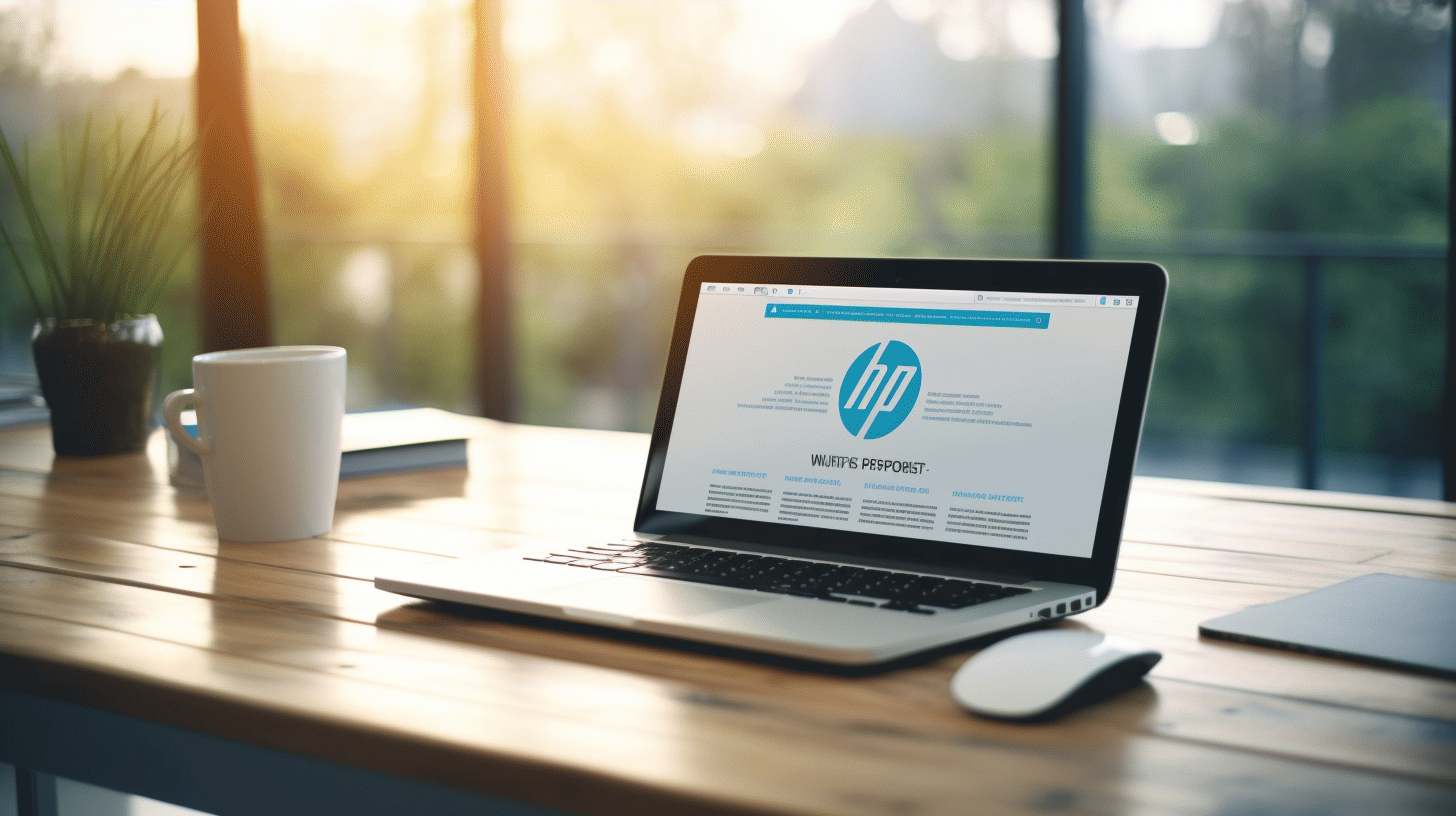In a world where online security threats are becoming more sophisticated by the day, it is crucial for WordPress users to prioritize the security of their websites. With millions of websites powered by WordPress, it has become a prime target for hackers and cybercriminals. The consequences of a compromised website can be severe, ranging from data breaches to reputational damage. This is why website security should be a top concern for all WordPress users.
🔒💻
With that in mind, it’s important to understand the risks associated with WordPress vulnerabilities and attacks, as well as the best practices to safeguard your website. By taking proactive measures to enhance the security of your WordPress site, you can significantly reduce the chances of a successful attack.
Let’s dive into some eye-opening statistics on WordPress vulnerabilities and attacks, as well as explore the best practices that can help you fortify your WordPress website and protect it from potential threats.
Statistics on WordPress Vulnerabilities and Attacks
With its widespread popularity and millions of websites running on it, WordPress has become a prime target for hackers. The statistics on WordPress vulnerabilities and attacks are eye-opening, shedding light on the severity of the issue and the importance of securing your WordPress site.
Frequency of Hacks
- Approximately 4.3% of WordPress websites scanned in 2022 had been hacked[1](#ref1).
- Around 13,000 WordPress websites are hacked per day, totaling 4.7 million hacked websites per year[1](#ref1).
- WordPress faces about 90,000 attacks per minute[1](#ref1).
- 74% of hacked WordPress sites used obsolete software at the time of the attack[1](#ref1).
- 39.3% of hacked WordPress sites were running out-of-date WordPress core software[1](#ref1).
Clearly, no website is completely safe from the threat of hacking, and it is crucial to stay vigilant and keep your WordPress site up to date to minimize the risk.
Common Vulnerabilities
One interesting aspect to note is that while WordPress is generally secure, it is the plugins and themes that often introduce vulnerabilities. Here are some notable statistics on common vulnerabilities:
- 2% of WordPress plugins are responsible for 99% of the vulnerabilities[1](#ref1).
- There was a 150% increase in vulnerabilities facing WordPress in 2023[1](#ref1).
- 83% of CMS-based websites hacked in 2022 were running WordPress[1](#ref1).
- Nearly 8% of websites are hacked due to weak passwords[1](#ref1).
- 73% of WordPress installations are vulnerable to cyberattacks[1](#ref1).
These figures highlight the importance of choosing reliable and regularly updated plugins and themes, as well as using strong passwords to protect your WordPress site from potential attacks.
It’s clear that the security of your WordPress site should not be taken lightly. To learn more about securing your WordPress site and protecting it from vulnerabilities and attacks, check out the Securing Your WordPress Site guide.
“26.90% of Sucuri’s cleanup activity involves WordPress websites.”[1](#ref1)
Keep in mind that staying up to date with security best practices and investing in robust security measures can go a long way in safeguarding your WordPress site from potential threats.
- Source: Securing Your WordPress Site
- Visit the Securing Your WordPress Site guide for more information.
Best Practices for Improving WordPress Security
In today’s digital landscape, ensuring the security of your WordPress website is of utmost importance. With hackers constantly looking for vulnerabilities to exploit, implementing robust security measures is essential to protect your website and its data. By following best practices, you can significantly reduce the risk of security breaches and keep your website safe. In this article, we will explore three key practices to enhance WordPress security.
Regularly Updating WordPress, Themes, and Plugins
One of the simplest yet most effective ways to improve WordPress security is to keep your website updated. Regularly updating WordPress itself, along with themes and plugins, is crucial for several reasons:
- Patch Security Holes: Updates often include security patches that address vulnerabilities identified in previous versions. By failing to update, you leave your website exposed to potential attacks.
- Prevent Exploitation: Hackers actively search for outdated software to exploit. Updating WordPress, themes, and plugins makes it harder for them to target your website.
- Compatibility and Performance: Updates also ensure compatibility with the latest version of WordPress and other plugins. It helps maintain optimal performance and functionality on your website.
To simplify the update process and ensure timely updates, you can use various plugins like Wordfence or MalCare. These security plugins not only help you manage updates but also offer additional security features for your WordPress website.
Using Strong and Unique Passwords
While it may sound like common sense, many website owners still underestimate the importance of using strong and unique passwords. Strong passwords play a crucial role in safeguarding your website against brute-force attacks. Here’s why you should pay attention to your passwords:
- Increase Difficulty for Hackers: Complex passwords with a combination of uppercase and lowercase letters, numbers, and special characters make it exponentially harder for hackers to crack them.
- Limit Password Reuse: Using a unique password for each user account on your website, including the admin account, is vital. If one account gets compromised, the others remain protected.
- Consider Password Managers: Managing multiple strong and unique passwords can be challenging. Password manager applications like LastPass or 1Password can help generate and store complex passwords securely.
By adopting strong and unique passwords, you elevate the security of your WordPress website and reduce the risk of unauthorized access.
Implementing Two-Factor Authentication
Two-Factor Authentication (2FA) adds an extra layer of security to your WordPress login process. It requires users to provide additional verification, usually through a mobile app or email, along with their username and password. Here’s why 2FA is essential:
- Enhanced Authentication: With 2FA enabled, even if a hacker manages to obtain a user’s credentials, they won’t be able to access the account without the secondary authentication method.
- Protect Against Password Guessing: By requiring an additional verification step, 2FA helps thwart brute-force attacks and prevents unauthorized access to your website.
- Easy to Implement: Many plugins, such as Wordfence, offer easy-to-use 2FA options for WordPress. These plugins provide step-by-step setup instructions, allowing you to implement this extra layer of security quickly.
By implementing two-factor authentication, you significantly enhance the security of your WordPress website and safeguard it against unauthorized access.
Remember, implementing these best practices is not a one-time endeavor. Aim to incorporate them into your regular website maintenance routine to ensure ongoing security. By taking proactive measures to protect your WordPress website, you can minimize potential security risks and maintain a safe online presence.
The Role of HTTPS and SSL Certificates
In today’s digital age, where data security is of utmost importance, HTTPS and SSL certificates have become essential tools for website owners. These acronyms may seem technical and somewhat confusing, but worry not! We’re here to break it down for you.
What is HTTPS?
HTTP stands for Hypertext Transfer Protocol, which is the protocol used for transmitting data between a web server and a user’s browser. The problem with plain HTTP is that it’s not secure. Any data transmitted through HTTP can be intercepted and read by malicious actors, compromising sensitive information such as passwords or credit card details.
To address this issue, HTTPS (Hypertext Transfer Protocol Secure) was introduced. The “S” in HTTPS stands for “Secure” and is achieved through the use of SSL (Secure Sockets Layer) or its successor, TLS (Transport Layer Security). These are cryptographic protocols that provide a secure channel of communication between the web server and the browser.
The Role of SSL Certificates
SSL certificates play a crucial role in enabling HTTPS. These digital certificates are small data files that bind a cryptographic key to an organization’s details. When a website has an SSL certificate installed, it signifies that the connection is secure and can be trusted.
Here are some key points to remember about SSL certificates and how they enhance website security:
- Authentication: SSL certificates validate the identity of a website and ensure that users are connecting to the correct website. This prevents phishing attacks and helps build trust with website visitors.
- Data Encryption: SSL certificates encrypt the data that is transmitted between browsers and web servers, making it unreadable to anyone who may intercept it. This ensures the confidentiality of sensitive information.
- Data Integrity: SSL certificates also ensure that the data transmitted between the browser and the web server remains intact and unaltered. Any tampering or modification of data during transmission is detected, helping prevent data breaches.
Installing a Free SSL Certificate
Now that you understand the importance of SSL certificates and HTTPS, you may be wondering how to get started. Luckily, installing an SSL certificate on your website doesn’t have to be complicated or expensive. In fact, there are options for obtaining free SSL certificates.
One popular option is using Let’s Encrypt, a nonprofit certificate authority that provides free SSL certificates. If you’re using WordPress for your website, you can follow a step-by-step guide on how to install a free SSL certificate on your WordPress site.
With a free SSL certificate in place, you can give your website visitors peace of mind knowing that their data is protected and secure. So don’t wait, enhance your website’s security today by enabling HTTPS with an SSL certificate!
Conclusion
In conclusion, website security is of paramount importance for WordPress users. With the increasing frequency of hacks and the existence of common vulnerabilities, it is crucial to implement best practices to protect your website. Regularly updating WordPress, themes, and plugins, using strong and unique passwords, and implementing two-factor authentication are essential steps in improving website security.
One tool that can greatly assist in enhancing WordPress security is the use of HTTPS and SSL certificates. By encrypting communication between the website and its visitors, HTTPS ensures that sensitive data remains private and secure.
For WordPress users looking for a reliable and secure hosting platform, Managed-WP™ offers a premium managed WordPress cloud hosting service. With their expert support available 24/7/365 and their focus on simplifying infrastructure, Managed-WP™ provides the freedom and peace of mind needed to run a secure website.
Take control of your website’s security and explore the benefits of Managed-WP™ today. Click here to learn more about their managed WordPress cloud hosting platform.
Remember, prioritizing website security is essential in maintaining a safe online presence, protecting your data, and providing a secure browsing experience for your visitors. Stay vigilant, stay secure! 🔒
Frequently Asked Questions
- Why is website security important for WordPress users?
Website security is crucial for WordPress users because it helps protect your website from cyber attacks, data breaches, malware infections, and unauthorized access. It ensures the safety of your website’s data, your users’ information, and your reputation.
- What are some common security threats faced by WordPress websites?
Some common security threats faced by WordPress websites include hacking attempts, brute force attacks, SQL injections, malware infections, unauthorized access to admin accounts, and vulnerabilities in outdated themes or plugins.
- How can I enhance the security of my WordPress website?
To enhance the security of your WordPress website, you can follow these steps: 1. Regularly update WordPress, themes, and plugins, 2. Use strong passwords and enable two-factor authentication, 3. Install a reliable security plugin, 4. Secure your login page and admin area, 5. Backup your website regularly.
- Do I need a security plugin for my WordPress website?
Yes, having a security plugin is highly recommended for your WordPress website. A good security plugin can offer features like malware scanning, firewall protection, login security, brute force protection, and activity monitoring, which greatly enhance your website’s security.
- Can I recover my website if it gets hacked?
In case your website gets hacked, you can recover it by restoring a previous backup, contacting your web hosting provider for assistance, removing malicious code or malware, updating all themes and plugins, and strengthening security measures to prevent future breaches.



















